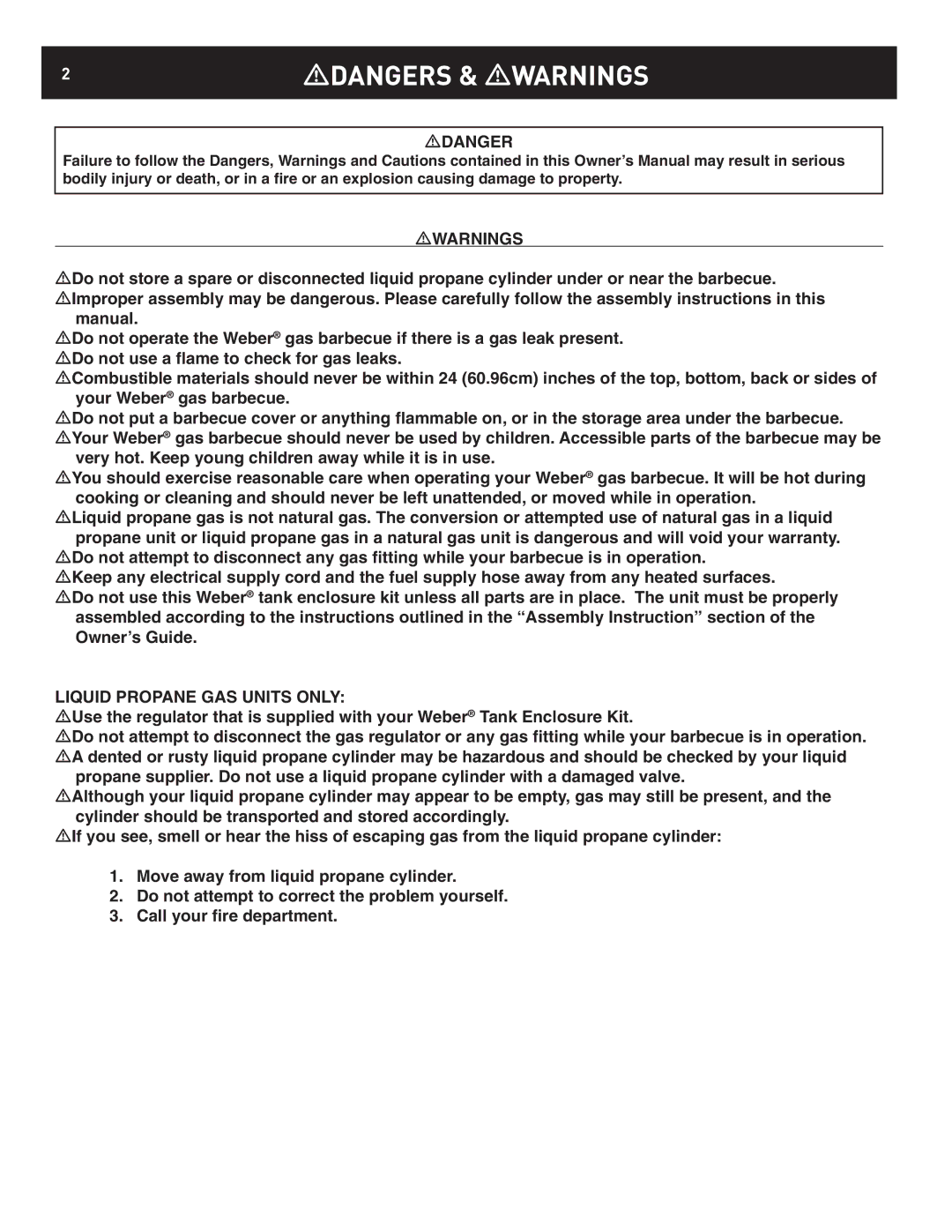
2 | DANGERS & WARNINGS |
DANGER
Failure to follow the Dangers, Warnings and Cautions contained in this Owner’s Manual may result in serious bodily injury or death, or in a fire or an explosion causing damage to property.
WARNINGS
Do not store a spare or disconnected liquid propane cylinder under or near the barbecue. Improper assembly may be dangerous. Please carefully follow the assembly instructions in this manual.
Do not operate the Weber® gas barbecue if there is a gas leak present. Do not use a flame to check for gas leaks.
Combustible materials should never be within 24 (60.96cm) inches of the top, bottom, back or sides of your Weber® gas barbecue.
Do not put a barbecue cover or anything flammable on, or in the storage area under the barbecue. Your Weber® gas barbecue should never be used by children. Accessible parts of the barbecue may be very hot. Keep young children away while it is in use.
You should exercise reasonable care when operating your Weber® gas barbecue. It will be hot during cooking or cleaning and should never be left unattended, or moved while in operation.
Liquid propane gas is not natural gas. The conversion or attempted use of natural gas in a liquid propane unit or liquid propane gas in a natural gas unit is dangerous and will void your warranty. Do not attempt to disconnect any gas fitting while your barbecue is in operation.
Keep any electrical supply cord and the fuel supply hose away from any heated surfaces.
Do not use this Weber® tank enclosure kit unless all parts are in place. The unit must be properly assembled according to the instructions outlined in the “Assembly Instruction” section of the Owner’s Guide.
LIQUID PROPANE GAS UNITS ONLY:
Use the regulator that is supplied with your Weber® Tank Enclosure Kit.
Do not attempt to disconnect the gas regulator or any gas fitting while your barbecue is in operation. A dented or rusty liquid propane cylinder may be hazardous and should be checked by your liquid propane supplier. Do not use a liquid propane cylinder with a damaged valve.
Although your liquid propane cylinder may appear to be empty, gas may still be present, and the cylinder should be transported and stored accordingly.
If you see, smell or hear the hiss of escaping gas from the liquid propane cylinder:
1.Move away from liquid propane cylinder.
2.Do not attempt to correct the problem yourself.
3.Call your fire department.
